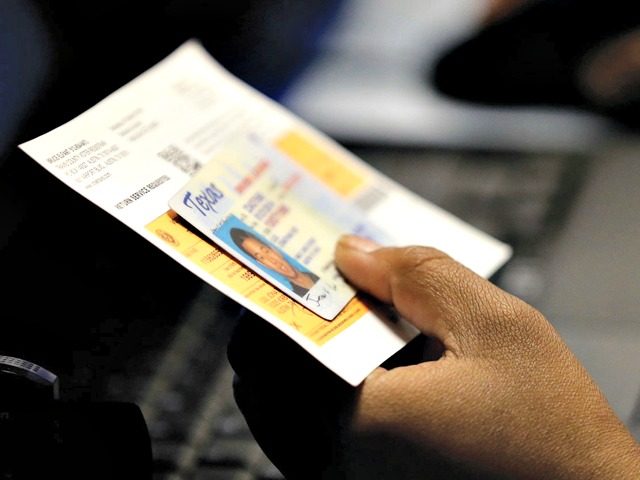The U.S. Court of Appeals for the Fifth Circuit overturned a lower court on Friday to allow a Texas voter ID law to remain in place in a case that could be a major breakthrough for conservative anti-voter fraud efforts.
Judge Edith Jones’s 17-page opinion for the court reverses a district court injunction that blocked the law, known as SB 5, from gong into effect. The law at issue, SB 5, was written last year specifically to address Voting Rights Act concerns with its 2011 predecessor, SB 14. It will now go into effect as planned.
“That Plaintiffs’ factual critique boils down to speculation demonstrates the prematurity of the court’s decision to invalidate SB 5 in 2017, well before the law took effect in 2018,” the Reagan-appointed Jones writes. “Nothing we conclude today disposes of any potential challenges to SB 5 in the future.”
The case is also notable in that, with the inauguration of President Donald Trump and the confirmation of Jeff Sessions as attorney general, the Department of Justice (DOJ) reversed course and dropped its own challenge to Texas’s law. “The Justice Department is committed to free and fair elections, and their protection is essential to our democracy,” DOJ Spokesman Devin O’Malley said in a statement after the court’s decision. “The Justice Department joined the State of Texas in arguing that SB 5 met all of the Fifth Circuit’s mandates when it was passed by the legislature, and we are pleased that the court agreed today.”
Under Attorneys General Eric Holder and Loretta Lynch, the department strongly sought to overturn laws like Texas’s.
Leading voter ID advocates were unsurprised but enthused by the ruling. Kansas Attorney General Kris Kobach, who served as vice chair of President Trump’s Advisory Commission on Election Integrity, told Breitbart News:
The decision of the Fifth Circuit is an illustration of what a good court ruling — one that strictly adheres to the plainly adheres to the plain meaning of the law and does not attempt to legislate from the Bench — looks like. The Texas photo ID law does not violate federal law or the United States Constitution in any respect.
The conservative Public Interest Legal Foundation tweeted:
A win like this is always great, even if it's expected. #VoterID
— PublicInterestLegal (@PILFoundation) April 27, 2018
The case is the latest battle in the war over Texas’s voter ID laws. This struggle has taken a long and convoluted path through the courts since the state passed SB 14 in 2011. That law, which required a photo ID to vote, immediately ran afoul of the Obama administration’s DOJ, who joined anti-voter ID groups like the Campaign Legal Center to block its enforcement.
This DOJ-led coalition won a district court victory against SB14 in 2014 before Obama-appointed Judge Nelva Gonzalez Ramos, who called the new law “an unconstitutional poll tax” that “creates an unconstitutional burden on the right to vote, has an impermissible discriminatory effect against Hispanics and African-Americans, and was imposed with an unconstitutional discriminatory purpose.”
On appeal, the case went all the way to the U.S. Supreme Court before the full compliment of the Fifth Circuit eventually agreed with Ramos that SB 14 as written was discriminatory. While Texas was unable to get SB 14 back in place for the 2016 elections, it did get another bite at the apple to re-write the law to address the Fifth Circuit’s concerns. SB 5 is the result.
A dissent by Obama-appointed Judge James Graves from Friday’s Fifth Circuit decision agrees with the new district court ruling and argues that none of SB 5’s changes matter. “The Texas Legislature enacted S.B. 14 with an intent to suppress minority voting. Because the thread of discriminatory intent runs through both S.B. 14 and S.B. 5, the district court’s judgment and remedial order should be affirmed,” he writes.
The case is Veasey v. Abbott, No. 17-40884 in the U.S. Court of Appeals for the Fifth Circuit.

COMMENTS
Please let us know if you're having issues with commenting.